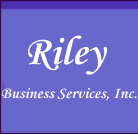     |
||
| WRITERS
Download our expense checklist for writers PDF Version Click here for Writer's Sample Tax Return from THE NEW TAX GUIDE FOR WRITERS, ARTISTS, PERFORMERS & OTHER CREATIVE PEOPLE By Peter Jason Riley, CPA
The writer has a bag of basic expenses that easily fit the above criteria: travel (hotel, meals, etc.), vehicle and transportation, office equipment, supplies, books & publications, audible subscriptions, home office expenses, legal and professional fees, printing costs, cloud-based services, etc. (see our complete list). Let's review some of the more complex and contentious deduction areas, but first let's discuss income. Income for the Writer Income for the writer is: all payments for articles, editing work, script writing, crowdfunding, ghost writing, book royalties, income from teaching, etc. regardless of whether you receive a 1099 at year-end. It is a common misconception that if you do not get a 1099 then it is not reportable income. This is untrue. If you have income in any form (including bartering), it is required to be reported on your tax return. The form 1099-NEC is supposed to be filed on any payments made to an individual for services amounting to more than $600 in any calendar year. Note that 1099's issued by your agent are generally the gross income. Be sure to include agent commission and expenses as deductions on your return. You may also have W-2 income working as an employee working for a magazine or other publication. Keep in mind that you may still have deductible expenses in this capacity if your employer does not reimburse you for expenses. Travel & Meals The professional writer is allowed to deduct all expenses associated with overnight business travel. These include meals (which are only 50% deductible), hotel & lodging, reasonable tips, dry-cleaning, phone calls home, etc. Overnight travel is roughly defined by the IRS as travel that is far enough away from home so as to make it inconvenient to return home at night. Travel could include expenses related to assignments and research for a specific article or book and will include many of the expenditures made on such trips. The other question often asked is whether the travel deduction applies for mixed vacation/business travel. If the trip is primarily business, then deductibility will be maintained. For example: a trip to NYC for a weeklong seminar or conference that includes a two-day stopover in Philadelphia on the way home to visit a friend. In this case the entire NYC trip would be deductible but the expenses related to the Philadelphia stopover would not be. Since maintaining receipts on the road is difficult, consider using the IRS "meal allowance" for deducting meals when traveling. This "meal allowance" (adjusted annually by the IRS) ranges from $68 to $92 per day depending on the location (visit www.gsa.gov for latest rates). In practice this means that receipts for meals are not required if the travel itself can be substantiated. This "allowance" includes all three meals and incidental expenses for the day. Travel expenses for spouses or dependents are not allowed unless they are employees in the writer's business. Meals are 50% deductible as part of the overnight travel. They are also allowed as a separate (non-travel) deduction when they meet the criteria of "ordinary, necessary and business related." This means that the meal must include direct business discussions. This can mean lunch or dinner meetings with agents, fellow writers, publishers, etc. If a direct business purpose were documented, then the deduction would be allowed. These meals could include discussions on publication schedules, research, and interviews, meetings with lawyers or accountants, and publishers. The best place to keep records for these expenses is in your calendar. Log into your records who was present, and briefly the nature and substance of the discussion. I often suggest that you keep a copy of the person's business card or other digital messaging as further substantiation. Remember as our lives continually become more virtual you MUST be able to access old calendar information (for up to 3 years) AND be able to print it in the case of an Internal Revenue Service audit. Automobile & Vehicle Expenses The use of your automobile is probably one of the most common and largest deductions for writers. The automobile use expense can be taken in two ways. The first method is by using the IRS "standard mileage allowance." In 2025, this annually defined allowance is 70 cents a mile and moves to 72.5 cents in 2026. To take this deduction you do not need receipts, only records that show the distances driven and the business purpose of the trips. These would include travel to publishers, trips to pick up office supplies, driving to libraries & bookstores, trips for research, etc. The best tool for tracking and calculating this expense is your appointment book or calendar. If your calendar has a record of meetings and shopping trips it can be used as a tool to estimate your mileage deduction (odometer readings are appreciated by IRS but NOT required). The second method is to write off direct expenses. In this method you actually depreciate the cost of the vehicle (over 5 years) and then tally up gas slips, repairs, insurance, etc. and use that amount as a basis for your expense. This method requires more work and organization. If you were writing off a heavy SUV (over 6000 LBS) or other larger vehicle, the second method would be preferred. In my practice I often find the mileage allowance method generally yields the highest deduction for straight automobile use. In any case the IRS allows the taxpayer to calculate the best method year by year and take the one that yields the highest deduction (within limits). FOR the latest rates check out our Tax QuikGuide Equipment Equipment purchased is generally "depreciated" and written off over 5 or 7 years on Form 4562. Depreciation is a technique for expensing or writing off purchases that have a useful life of greater than one year. In other words, a computer is intrinsically different in nature than office supplies because the computer will last longer than 1 year. Office supplies, books, publications, etc. will be written off (or deducted) in the year of purchase. Most office equipment (computers, faxes, smart phones, tablets, smart watches, printers) is written off in five to seven years. These "depreciable lives" are defined in the IRS code. The 2017 TCJA tax bill really changed the depreciation deduction. The "the section 179 election" that allows for the immediate expensing of most assets. In this case the author can write-off their $1,600 MacBook® computer or iPad Pro in one year rather than wait five years to do it. Remember, this "section 179 expensing election" only accelerates the deduction into one year; in either method the artist can write-off (depreciate) the full cost of the purchase. The Home Office or Studio If you use a room (or rooms) in your home exclusively for your writing you will probably qualify for the home office. The use of the room can be a rehearsal space, storage area for equipment, teaching space, record keeping for the business, marketing, etc. The home office is a fairly straightforward deduction to calculate on form 8829. It simply utilizes a formula based on the square footage of the business portion (the home office) of your home vs. the total square footage of the house or apartment and applies that percentage to all associated costs. The costs could include rent, mortgage interest, real estate taxes, condo fees, utilities, insurance, repairs, etc. Other rules that come into play here include the "exclusive use" requirement. This rule states that the home office must be used only for the business no "mixed use" allowed. In other words, the home office cannot be part of a larger room such as the living room unless the business part is partitioned off in some way. The home office can be a powerful write-off as it allows the writer to deduct a part of what were non-deductible personal expenses. Look into the alternative "Simplified Method"; it is easier but offers a much smaller tax deduction. Other Unique Deductions Writers have other unique deductions that are considered personal for most other taxpayers. These include books for research and professional enrichment, streaming music and video, audible books, tickets to plays & movies for script research. Remember not to get greedy on items like tickets, books and streaming services. The IRS loves to attack deductions such as these. But they are allowed since writers must keep up with trends in their profession. Most tax preparers call it "research," but be prepared to justify it. In any case do not deduct EVERY concert or show you attend or book you buy in the year; they can't all be "research." This also holds true for streaming music and videos, audible or digital books, DVDs, and CDs since some purchases must be for personal pleasure alone. Finally… Remember that this outline is not intended to be the whole story. The Federal Tax Code is very complicated and your specific applications should be reviewed with a tax professional before filing your taxes. The writer is unique in the world of taxes. When you are shopping for a tax preparer please make sure they have some experience in taxation for writers. Also, organize your numbers using our attached worksheets (and bring along this article), it will make the process easier, cheaper and will help you maximize your deductions. Ask your preparer about other tax saving strategies for self-employed individuals such as retirement plans, health insurance and deduction timing. © Peter Jason Riley, CPA © Copyright 2001-2026 Riley Business Services 978.270.9260 All Rights Reserved |